
Naming every expedition participant in a telepresence-enabled mission is next to impossible! Many from dozens of institutions across the country have provided input into the expedition plan and are expected to participate. However, we've assembled information about the members of the team who are physically onboard NOAA Ship Okeanos Explorer.
And of course, none of this exploration would be possible without the work of the dedicated NOAA Commissioned Officer Corps and civilians who operate NOAA Ship Okeanos Explorer as part of NOAA's fleet managed by NOAA's Office of Marine and Aviation.
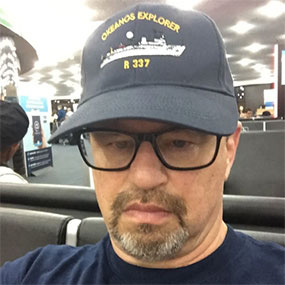
Video Engineer, Global Foundation for Ocean Exploration
Brian Doros is a television broadcast engineer who was born in Long Branch, New Jersey. Active in sports throughout high school, Brian moved to Southern California and spent the next few years traveling the world surfing and then exploring his technical interests at college in San Diego, California. After changing his course of study to electronics, he focused on broadcast electronics and technical maintenance in broadcasting. His career path first led him to employment at IBM/MCA Video Laser Disc Company in Costa Mesa, California, doing research and development in the early days of optical laser disc, then to Los Angeles, where he specialized in film for television post-production. The next several years were spent working in the Hollywood post-production industry at Paramount Pictures, MGM/Lorimar Telepictures, 20th Century Fox, NFL Films, and Sony Broadcast Company North America, contributing to his 25 years of experience in television post-production and broadcast systems integration. After Hollywood, Brian worked in the field, traveling and upgrading network television facilities to digital broadcasting capabilities during the analog to digital conversion. He now has moved on to less broadcast traditional applications of his background working in his current position.
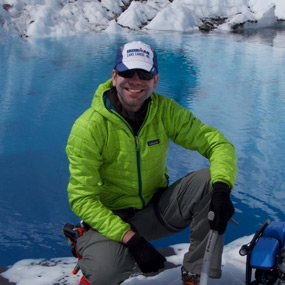
Orpheus Engineer, NASA Jet Propulsion Laboratory
Andrew Klesh, Ph.D., works at the NASA Jet Propulsion Laboratory as a lead engineer for several deep space missions, including 2025’s Lunar Trailblazer mission to the moon and 2018’s MarCO mission to Mars — the smallest spacecraft to travel beyond Earth. He also serves as engineering lead for several under-ice and deep-ocean vehicles, often traveling on field expeditions to Earth’s extremes throughout arctic, Antarctic, and deep-ocean regions. Recently he has partnered with Caltech to deploy advanced distributed seismic systems. After completing his education at the University of Michigan (B.S.E. electrical engineering, B.S.E. aerospace engineering, M.S.E. aerospace engineering, M.Eng. space systems, Ph.D. aerospace engineering), he spent a year in Japan at the Japanese Space Agency supporting solar sail and asteroid missions. Outside of work, he volunteers as an Emergency Medical Technician (EMT) with the Pasadena Fire Department and as operations staff for the Catalina Hyperbaric Chamber. As a lecturer at Caltech and adjunct professor at Arizona State University, he teaches Electronics for Space Applications and Macgyver Engineering. Any spare time is taken up by flying, running, cycling, backpacking, and tinkering.
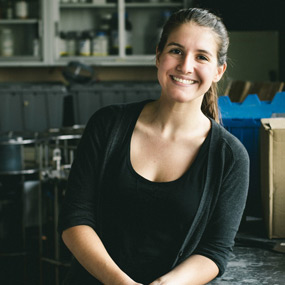
eDNA Lead, NOAA Ocean Exploration
Katharine Egan is a physical scientist and program coordinator at NOAA Ocean Exploration in Silver Spring, Maryland. She completed her bachelor’s degree in marine biology at the University of Rhode Island and her master’s in marine and environmental science at the University of the Virgin Islands. Her research background is primarily in geospatial analysis, spatial predictive modeling, and coral reef ecology. Throughout her career, Katharine has been involved with NOAA in several capacities. She interned at the NOAA National Centers for Coastal Ocean Science (NCCOS) in 2014 through the Ernest F. Hollings Scholarship Program. After completing her undergraduate studies, she joined NCCOS full time as a contractor in the role of Geographic Information System (GIS) Analyst working with data from the National Coral Reef Monitoring Program and compiling data for corals listed under the Endangered Species Act. Katharine joined NOAA Ocean Exploration in 2019 through the John A. Knauss Marine Policy Fellowship program and has stayed on since. Since joining, she has been leading an effort focused on improving the office's data accessibility and ocean exploration operations.
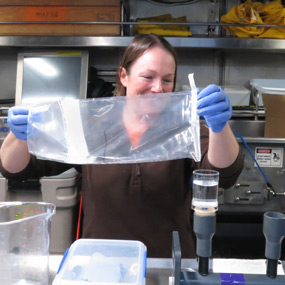
Biologist, NOAA Northwest Fisheries Science Center
Meredith Everett holds a Ph.D. in marine biology from the Rosenstiel School for Marine and Atmospheric Science (RSMAS) at the University of Miami. Applying genetic and genomic tools, she has worked on marine organisms ranging from tiny picoeukaryotes and phytoplankton to salmon to killer whales. Her current research focuses on using genetic and genomic tools and techniques to study deep-sea coral and sponge communities to better understand their composition and distribution as well as their importance as habitat to fish and other invertebrates. As part of this work, Meredith has been developing environmental DNA (eDNA) approaches to understand the biodiversity in deep-sea communities, and applying these methods to communities across the Pacific Ocean. When not in the lab or out at sea, Meredith can be found cycling and rock climbing around Washington state, or just hanging out in the garden with her family at home near Puget Sound.
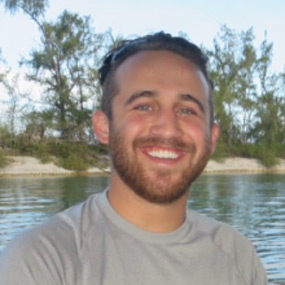
Mapping Watch Lead, University Corporation for Atmospheric Research
Daniel Freitas is from Rochester, New York. He worked for NOAA as a general vessel assistant for over three years in the augment pool while attending Coastal Carolina University where he studied marine biology and applied mathematics. Over the last eight years he has worked in the deck, engineering, and survey departments aboard many NOAA vessels before taking a permanent position aboard NOAA Ship Okeanos Explorer for one-and-a-half years. For the last three years he has worked as an independent contractor via the University Corporation for Atmospheric Research the Okeanos, supporting the NOAA Ocean Exploration mapping team. His time aboard consists of acting as a mapping watch lead, helping train and direct explorers-in-training, and working with the senior survey technician and other crew members to ensure the ship’s missions are completed.
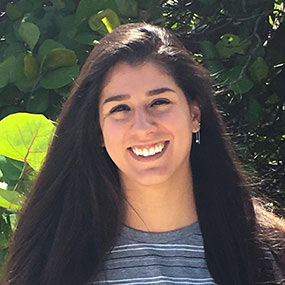
Expedition Coordinator in Training, NOAA Ocean Exploration
A Florida native, Kim’s interests in marine life started at a young age with regular trips to the reefs in the Florida Keys. Kim studied biological sciences at the University of Miami where she became a research assistant with the Marine Geosciences Department at the University of Miami's Rosenstiel School of Marine and Atmospheric Sciences (RSMAS). Kim continued her education at RSMAS, earning a doctorate in marine geology and geophysics, focusing on cold-water coral systems within the carbonate province of the Straits of Florida. Her research included habitat mapping and terrain classification with acoustic maps, carbonate sedimentology, stable isotope geochemistry, and geochronometry. After sailing as a geology science lead during the 2019 Southeastern U.S. Deep-sea Exploration expedition, Kim joined NOAA Ocean Exploration as an Expedition Coordinator in 2020. During her spare time, Kim enjoys traveling, hiking, scuba diving, and baking.
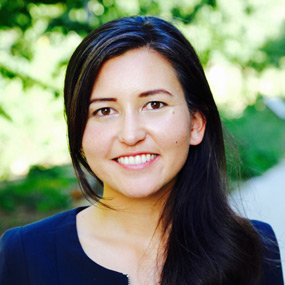
Engagement Specialist, NOAA Ocean Exploration
Originally from California, Rachel earned a bachelor's degree in English from the University of California at Berkeley and a master's degree in environmental management from the Yale School of the Environment. At Yale, she focused on conservation and science communication, serving as associate editor of an environmental arts magazine and programming director of the free, publicly accessible Environmental Film Festival at Yale (EFFY). Prior to coming to NOAA Ocean Exploration, she worked as an outdoor educator, archaeology technician, and researcher in various parts of the US and Latin America. With travel and work experience in over two dozen countries, she is deeply interested in the many motivations that drive different people to care about and conserve the natural world.

Photographer and Producer, Global Foundation for Ocean Exploration
For more than 30 years, Emmy-award winning photographer and producer Art Howard has helped viewers experience life through images from 50 countries and seven continents. A native North Carolinian, Art has followed researchers aboard multiple deep-sea missions, documenting the excitement and challenges of exploration. Art uses the latest video technology to bring viewers as close as possible to life at sea, from the surface to depths of 3,000 feet, capturing both scientists and the marine life they seek to understand. Art has spent the last 11 years independently producing media for the North Carolina Museum of Natural Sciences.
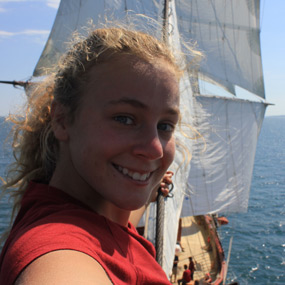
Media Producer, Inner Space Center, Graduate School of Oceanography, University of Rhode Island
Jess graduated from the University of Rhode Island with a Bachelor of Science in Wildlife Conservation Biology. During her time at school she took many film classes, which allowed her to learn that she could blend art with science by using film media to communicate the stories of those in the field. In 2016 she was a deckhand and videographer for the SSV Oliver Hazard Perry. That position spawned a love of sailing and was the first of many jobs at sea. Jess has continued to be a steward of the environment through her various roles including volunteering as a diver and rescue clinic technician at the Mystic Aquarium in Connecticut, and through her work with the Inner Space Center, where she and her team communicate science and tell the stories of ocean explorers. She has helped to produce many live, educational programs from various research vessels and from shore. In her spare time, Jess is an active member of the National Ski Patrol, a rock climber, scuba diver, and hiker. She loves traveling and spending time with her family and their many dogs.
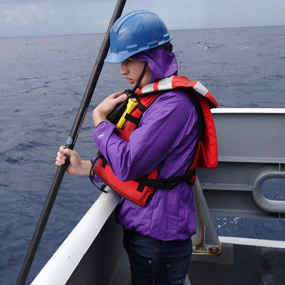
Lead Engineer for the Orpheus Autonomous Underwater Vehicle Team, Woods Hole Oceanographic Institution
Casey is a research engineer at Woods Hole Oceanographic Institution. She has a background in mechanical engineering, and is the lead engineer for the Orpheus team. Her work involves the design and operation of underwater vehicles (both remotely operated and autonomous) in challenging environments, such as under ice or at extreme depths. She has worked as an expedition leader and pilot for the hybrid remotely operated vehicle (HROV) Nereus and the HROV Nereid Under Ice.

Mapping Watch Lead, University Corporation for Atmospheric Research
Jason Meyer first pursued his passion for seafloor exploration while earning a bachelor’s degree in geology from the University of Hawaiʻi at Hilo where he studied volcanic processes along the Hawaiian Islands. He later went on to receive his master’s in geology from the University of South Carolina, focusing on regional mapping and classification of seafloor volcanoes along the East Pacific Rise and the Galapagos Spreading Center in the Pacific Ocean. Since graduating in 2006, Jason has followed a career as a hydrographer, mapping and exploring the ocean as well as coasts, rivers, reservoirs, and lakes throughout North America, the Pacific, and the Atlantic. He has endured long hours and challenging conditions at the helm and the computer collecting data that serves maritime navigation, dredging and construction operations, environmental remediation projects, and academic exploration. Jason first sailed aboard NOAA Ship Okeanos Explorer in 2015 and has participated in more than 10 expeditions. While not at sea, he enjoys climbing, surfing, backpacking, and traveling with his family. Jason resides in Battle Ground, Washington.
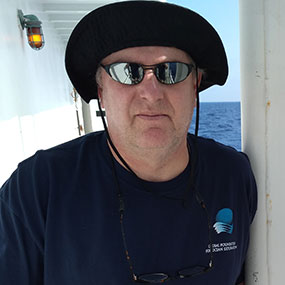
Systems Administrator, Global Foundation for Ocean Exploration
Jim Meyers attended Williams College and received a bachelor’s degree in history. He has worked in the information technology field for over 20 years, including 19 years at various positions at Sea Research Foundation, Inc. in Mystic, Connecticut. He is married with two adult children. Outside of work, he is an avid soccer fan and plans European vacations around match schedules.
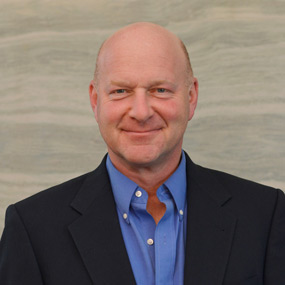
Orpheus Autonomous Underwater Vehicle (AUV) Science Lead, Woods Hole Oceanographic Institution
Tim Shank is a deep-sea biologist, associate scientist in the Biology Department, and former Director of the Ocean Exploration Institute at the Woods Hole Oceanographic Institution. His research combines genomic and ecological studies to understand adaptations of deep-sea life and human impacts in the deep ocean. He has conducted more than 75 scientific expeditions, more than 50 dives in the submarine Alvin, and more than 500 dives with remotely-operated vehicles (ROVs), including the first use of a hybrid ROV (Nereus) in the deepest trenches. He has authored more than 100 scientific papers, and a best-seller book “Discovering the Deep”. He currently directs the HADEX (Hadal Exploration) Program at the Woods Hole Oceanographic Institution, which includes the development of hadal autonomous vehicles Orpheus and Eurydice.

Orpheus Autonomous Underwater Vehicle (AUV) Engineer, NASA Jet Propulsion Laboratory (JPL)
Russell Smith is a robotics engineer at NASA’s Jet Propulsion Laboratory. Russell graduated from Caltech with a bachelor’s in mechanical engineering in 2014. Over the last six years at JPL, Russell has worked on diverse research tasks including electro-adhesive gecko wall climbers, robotically assembled structures and interfaces, racing quadrotors, the Mars Helicopter, an ice climbing robotic inchworm, avionics for cooperative autonomous lunar robots, and software for the Orpheus deep-sea AUV. Career highlights include driving electrostatic-gecko robots in zero-g, dangling the Mars Helicopter off a fishing line, belaying a rock climbing robot in Death Valley, deploying Iceworm in the massive ice caves atop an active stratovolcano, and deploying a deep-sea AUV to run fully autonomous missions. Russell is currently splitting his time between developing control and simulation software for Orpheus, and leading avionics development for several cooperative shoebox-sized rovers for an upcoming Lunar mission in 2023.
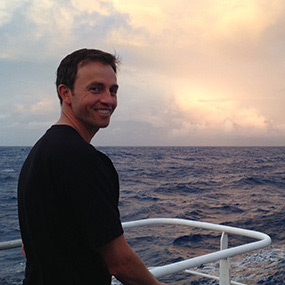
Mapping Lead, NOAA Ocean Exploration
Derek has worked as an expedition coordinator and mapping lead for NOAA Ocean Exploration for the past eight years. He completed a bachelor’s in environmental science from the University of New Hampshire, a master’s in marine resource management from Oregon State University, and a Ph.D. in oceanography from the University of New Hampshire. He has 14 years of previous experience working for NOAA's National Estuarine Research Reserve network and the EPA’s National Estuary Program in both Oregon and New Hampshire. Derek has participated in oceanographic expeditions spanning remote areas of the Arctic, Pacific, and Atlantic oceans. Derek works onshore at the Center for Coastal and Ocean Mapping/Joint Hydrographic Center at the University of New Hampshire.

Physical Scientist/Expedition Coordinator (ROV), NOAA Ocean Exploration
A native of Long Island, New York, Mike took a deep interest in ocean science at a young age, growing up in and on the water. Mike joined NOAA Ocean Exploration in 2016 and has participated in deep-sea exploration teams in the Pacific Ocean, Atlantic Ocean, Gulf of Mexico, and Caribbean. He has led dedicated Mapping, Remotely Operated Vehicle, and Technology Demonstration expeditions using the latest ocean exploration technology and uncrewed systems to explore the deep sea. Mike graduated from the State University of New York at Geneseo with a degree in geological sciences, and then continued his education at the School of Marine and Atmospheric Sciences at Stony Brook University. Upon receiving his master's in marine and atmospheric science and completing a graduate certificate in geospatial science, Mike started with NOAA as a hydrographic analyst with NOAA’s Integrated Ocean and Coastal Mapping team at the Center for Coastal and Ocean Mapping at the University of New Hampshire. When not at sea, Mike loves spending time outdoors with his wife and four-month-old son, Ryder, in the garden, and with his goldendoodle, Wendy.

Systems Administrator, Global Foundation for Ocean Exploration
Chris Wright holds a B.S. in business administration from the University of Mary Washington and an M.B.A from Rollins College. After graduation, he worked as a network and systems administrator and engineer in the hospitality industry in the Northeast and Mountain West for more than 15 years. Recently relocating back to the East Coast, Chris joined the Global Foundation for Ocean Exploration data team in early 2019 as one of the newest members of the organization. In 2019, he completed his first cruise aboard NOAA Ship Okeanos Explorer and is extremely excited about continuing the journey to explore the oceans around the world. When he isn't sailing on Okeanos Explorer, he’s busy working in GFOE’s Quonset office planning, designing and implementing data solutions to help refine and mature its base of operations for ocean exploration. Chris and his family currently reside in Newport, Rhode Island.